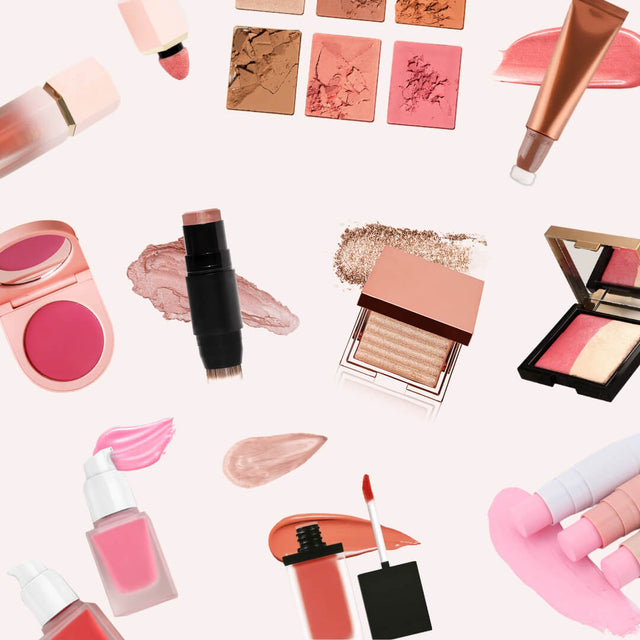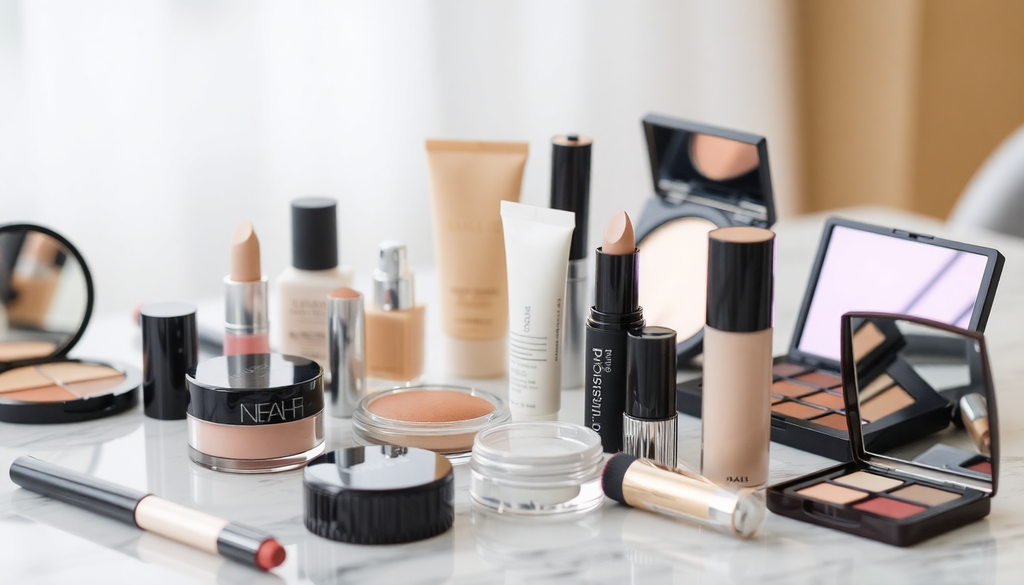
Your Ultimate Guide to Private Label Cosmetics: Launching a Makeup Line with No Minimum Orders
Introduction
In an era where individuality and personal branding reign supreme, launching your makeup line has become a more attainable goal than ever. The cosmetic industry is booming, and private-label cosmetics present a unique opportunity for aspiring entrepreneurs. This comprehensive guide will provide all the insights you need to successfully launch a makeup line without the burden of minimum order quantities, enabling you to bring your creative vision to life.
What are Private Label Cosmetics?
Private-label cosmetics are products manufactured by one company but sold under another company's brand. This business model allows entrepreneurs to focus on brand development and marketing while leaving the complexities of production and formulation to established manufacturers. With private-label cosmetics, you can curate a line of products that reflects your unique style and meets the needs of your target market.
Benefits of Starting a Private Label Cosmetics Line
- No Minimum Orders: Many suppliers offer private-label products with no minimum order requirements, making it easier for startups to enter the market without a significant financial commitment. ( Note: the packaging will be the supplier's stock packaging, only add your design or logo, if bespoken the packaging, there are required large quantities.)
- Branding Control: You can create your own brand identity, from packaging design to marketing strategies, ensuring that your products resonate with your audience.
- Cost-Effective: Private label cosmetics save you from the high costs associated with product development, raw materials, and manufacturing equipment.
- Variety of Products: Most suppliers offer a wide range of products, including skincare, makeup, and hair care items, allowing you to diversify your product line.
- Quick Market Entry: With established formulas and manufacturing processes, you can launch your products faster than if you were developing them from scratch.
- Flexibility: You can start small, test the market, and scale your business as demand grows.
Steps to Launch Your Private Label Cosmetics Line
-
Conduct Thorough Market Research:
Understanding your market is crucial for success. Identify your target audience, analyze competitors, and assess market trends to determine potential product demand. Utilize tools like surveys, social media polls, and online forums to gather insights.
-
Select a Niche:
Choosing a specific niche within the cosmetics industry can set you apart from competitors. Whether it’s organic beauty products, vegan makeup, or products catered to specific skin types, a well-defined niche allows you to tailor your branding and marketing efforts.
-
Find a Reliable Supplier:
Research suppliers that specialize in private-label cosmetics with no minimum order requirements. Look for quality, reliability, and a diverse product range. Request samples to evaluate the quality of products before making a commitment.
-
Collaborate on Product Development:
Work closely with your supplier to customize products according to your brand vision. This includes formulating unique colors, scents, and packaging designs that resonate with your target audience. Ensure your products meet all regulatory standards and are safe for consumer use.
-
Create a Compelling Brand Identity:
Your brand identity is essential for standing out in a crowded market. Develop a memorable brand name, logo, and packaging that reflect your brand values and appeal to your audience. Consistency across all platforms is key to building brand recognition.
-
Set Up Your Online Presence:
In today’s digital age, having a strong online presence is vital for success. Build a professional website that showcases your products, tells your brand story, and provides an easy shopping experience. Additionally, create social media profiles to engage with your audience and share content related to your products.
-
Implement Your Marketing Strategy:
Once your products are ready, it’s time to market them effectively. Use digital marketing strategies such as SEO, social media marketing, and influencer partnerships to create buzz around your launch. Consider paid advertising to reach a wider audience.
Choosing the Right Supplier
Choosing the right supplier is one of the most critical steps in launching your private label cosmetics line. Here are some factors to consider:
- Quality Assurance: Ensure that the supplier adheres to industry standards and conducts regular testing to guarantee the safety and efficacy of their products.
- Customization Options: Look for suppliers that offer extensive customization options, allowing you to create unique formulations and packaging that align with your brand.
- Shipping and Fulfillment: Understand the supplier's shipping policies and fulfillment capabilities to ensure timely delivery to your customers.
- Customer Support: A reliable supplier should have excellent customer service to assist you with any inquiries or issues that may arise during the process.
- Reputation and Reviews: Research the supplier's reputation in the industry by reading reviews and testimonials from other businesses that have worked with them.
Marketing Your Private Label Cosmetics Line
With your products ready for launch, it’s essential to implement effective marketing strategies to attract customers. Here are some tips to market your private label cosmetics line:
- Leverage Social Media: Utilize platforms like Instagram, TikTok, and Pinterest to showcase your products visually. Create engaging content, including tutorials, product demos, and behind-the-scenes glimpses of your brand.
- Influencer Collaborations: Partner with beauty influencers who align with your brand values. Influencers can help amplify your reach and credibility by showcasing your products to their followers.
- Content Marketing: Develop valuable content that resonates with your audience. This can include blog posts, video tutorials, and beauty tips that establish your brand as an authority in the cosmetics space.
- Email Marketing: Build an email list of potential customers and send regular newsletters featuring exclusive offers, product launches, and beauty insights.
- Online Advertising: Invest in online advertising, such as Google Ads or social media ads, to reach a targeted audience and drive traffic to your website.
- Promotions and Discounts: Consider offering limited-time promotions or discounts for first-time customers to encourage purchases and build a loyal customer base.
Building Customer Loyalty
Once you have made your first sales, the next step is to build customer loyalty. Here are some strategies to consider:
- Exceptional Customer Service: Provide excellent customer service for a positive shopping experience. Respond promptly to inquiries and handle any issues with professionalism.
- Engagement on Social Media: Actively engage with your customers on social media by responding to comments, messages, and reviews. Create a community around your brand to foster loyalty.
- Loyalty Programs: Consider implementing a loyalty program that rewards repeat customers with discounts or exclusive access to new products.
- Gather Feedback: Regularly seek customer feedback to understand their needs and preferences. Use this information to improve your products and services.
Legal Considerations
As with any business, launching a private label cosmetics line involve legal considerations. Here are some important aspects to keep in mind:
- Product Safety Regulations: Ensure your products comply with local and international cosmeticss regulations. This includes safety testing and labeling requirements.
- Intellectual Property: Protect your brand by registering trademarks for your brand name and logo. This will help prevent others from using your brand identity.
- Contracts with Suppliers: Establish clear contracts with your suppliers that outline terms of service, payment, and liability to protect your interests.
- Insurance: Consider obtaining liability insurance to protect your business against potential claims related to product safety or marketing practices.
Conclusion
Starting a private label cosmetics line with no minimum orders is a viable pathway to launching your beauty brand. By following these steps and leveraging the benefits of private label products, you can create a successful cosmetics line that resonates with consumers. Embrace your entrepreneurial spirit and get started on your journey today! Remember, the beauty industry is vast and ever-evolving, so stay informed about trends and continuously adapt your strategy to meet the needs of your target market.




Leave a comment
All comments are moderated before being published.